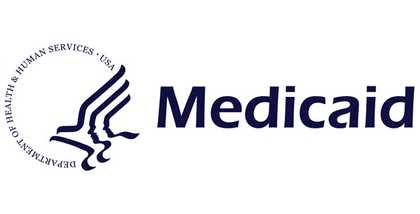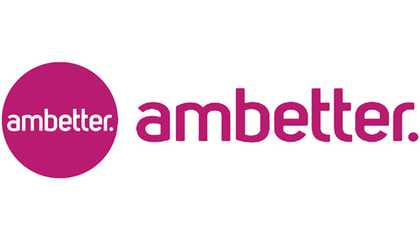This article delves into essential practices and considerations, including daily oral hygiene, regular dental visits, specialized denture care, and financial strategies for comprehensive dental care for aging adults.









$149 New Patient Special!*
Includes comprehensive exam, full mouth x-rays and a cleaning for new patients without insurance.
Maintaining optimal dental health is vital as we age, impacting not just oral well-being but overall quality of life. Aging adults often encounter unique dental challenges such as gum disease, tooth decay, and changes in oral function. Recognizing the importance of personalized dental care for aging adults empowers seniors and caregivers to take proactive measures in preserving a healthy smile. This article delves into essential practices and considerations, including daily oral hygiene, regular dental visits, specialized denture care, and financial strategies for comprehensive dental care for aging adults.
The Vital Role of Dental Care in Overall Health
Dental health is intrinsically linked to general health, emphasizing the importance of dental care for aging adults. Poor oral hygiene can lead to systemic health issues like cardiovascular disease, diabetes, and respiratory infections. The mouth serves as a gateway to the body, highlighting the need for good oral health to prevent these conditions.
Aging adults face distinct dental issues, including dry mouth, gum disease, tooth decay, and tooth loss. Medications can worsen these issues, leading to discomfort and eating difficulties. Physical health changes may also affect an individual’s ability to maintain regular dental hygiene, increasing the importance of professional dental care for aging adults.
Preventive care is crucial in maintaining dental health among older adults. Regular dental check-ups enable early detection and treatment of potential problems before they escalate. Professional cleanings remove plaque and tartar, while fluoride treatments strengthen enamel and prevent decay. Prioritizing preventive care significantly enhances the quality of life and helps preserve natural teeth for as long as possible.
Effective Daily Oral Hygiene Practices
Proper oral hygiene is essential for aging adults to maintain dental health and overall well-being. Effective brushing techniques involve using a soft-bristled toothbrush and fluoride toothpaste, brushing gently in circular motions for at least two minutes. Cleaning all tooth surfaces, including inner, outer, and chewing areas, helps prevent cavities and gum disease.
Flossing is equally important, removing food particles and plaque from between teeth where a toothbrush can’t reach. Seniors should aim to floss daily, using a gentle sawing motion to avoid gum damage. Using an antimicrobial mouthwash can further reduce plaque buildup and freshen breath, adding an extra layer of oral health protection.
Dry mouth is a common issue for aging adults, leading to difficulties in chewing, swallowing, and speaking. This condition may result from medications or health issues. Managing dry mouth involves staying hydrated and sipping water throughout the day to stimulate saliva production. Saliva substitutes or mouth rinses designed to alleviate dry mouth can improve comfort and oral health.
The Importance of Regular Dental Visits
Regular dental visits are crucial for maintaining optimal oral health, especially for aging adults. During a dental exam, older patients receive a comprehensive evaluation of their teeth, gums, and overall oral condition. Dentists check for signs of decay, gum disease, and any changes since the last visit, sometimes taking X-rays to detect hidden issues.
Routine cleanings and checkups play a vital role in preventing dental problems. As we age, oral health can be affected by various factors, including medications and existing health conditions. Cleanings help remove plaque and tartar buildup, reducing the risk of cavities and gum disease. These appointments also allow early detection of potential issues for timely intervention and treatment.
Effective communication with your dentist is crucial for optimal care. Be open about any changes you’ve noticed, such as sensitivity, pain, or difficulty eating. Ask questions and express any concerns about your oral health. A collaborative approach ensures your dentist tailors their recommendations to your specific needs, enhancing your dental care experience.
Special Considerations for Denture Care
Proper cleaning and maintenance of dentures are crucial for ensuring oral health in aging adults. Dentures should be cleaned daily with a soft-bristled brush and non-abrasive cleanser designed for dentures, removing food particles and preventing plaque buildup that can cause gum irritation and other dental issues. Soaking dentures overnight in a cleaning solution keeps them fresh and hygienic. Regularly checking for signs of wear or damage is essential, as ill-fitting dentures can cause discomfort and affect oral health.
Adjusting to dentures requires time and patience. Many aging adults face a learning curve as they adapt to the feel and function of new teeth. Initial discomfort or difficulty with eating and speaking is normal. Starting with soft foods and practicing speaking can ease this transition. Over time, most people adapt well, regaining the ability to enjoy a varied diet and communicate effectively.
Knowing when to consult your dentist about dentures is vital for maintaining oral health. Persistent pain, soreness, or changes in denture fit require professional advice. Regular dental check-ups help monitor denture condition and overall oral health. Your dentist can make necessary adjustments for comfort and address any concerns, helping you maintain your best smile.
Navigating Financial Options for Dental Care
As dental care needs evolve with age, understanding financial options becomes crucial for aging adults seeking quality dental services. Many seniors wonder about insurance coverage for dental care for aging adults. Medicare typically doesn’t cover routine dental care, but some Medicare Advantage plans offer additional benefits that include dental coverage. Reviewing these plans ensures necessary dental treatments are included.
For affordable dental care programs, various community resources and non-profit organizations offer services at reduced rates. Local dental schools often provide low-cost treatments by students under professional supervision, ideal for budget-conscious seniors. Some dental practices may offer in-house financing or discounts for seniors, making treatments more accessible.
Understanding out-of-pocket costs is vital in planning for dental care. Seniors should inquire about estimated costs before beginning any treatment. Many dental offices offer payment plans allowing patients to spread expenses over time, reducing financial burden. Exploring these options and communicating financial concerns with dental providers ensures aging adults receive necessary dental care without compromising financial stability.









